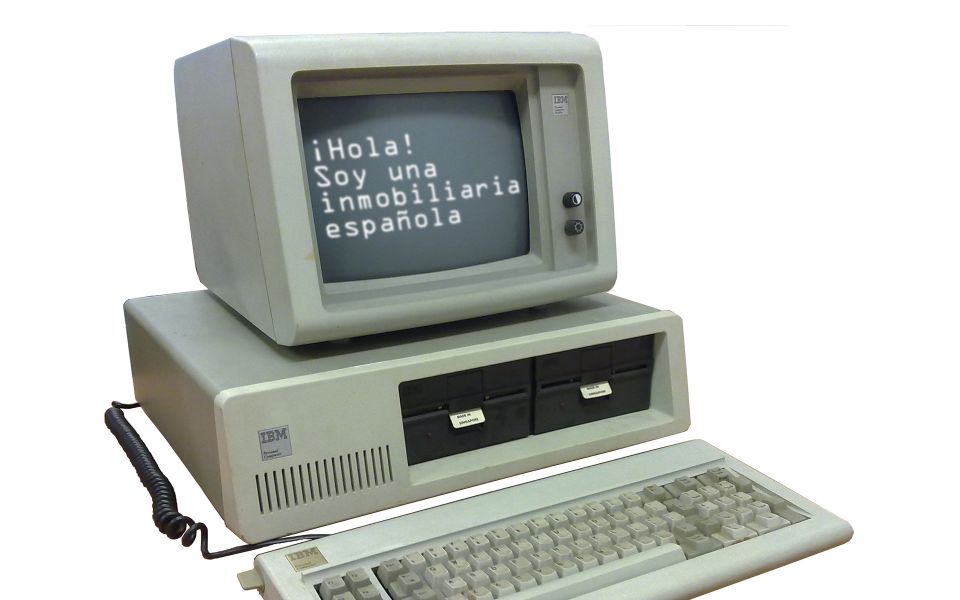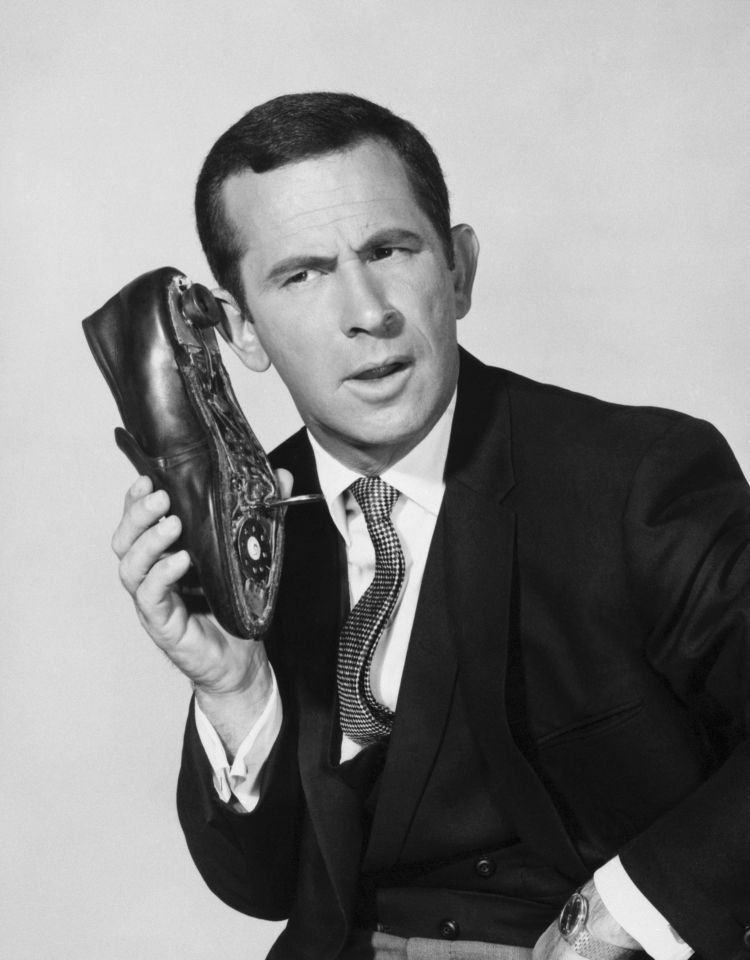The real estate sector and digital transformation - renew or die!
In this post we talk about digital transformation and the real estate sector. What it is, why it is important and how to start deploying it in our companies. Real estate, renew or die!
Recently, I had the opportunity to give a course on the importance of digital transformation and its platforms to the various agencies that are part of the Avanza MLS in Fuengirola.
In this post I want to share some of the main points discussed during that course, because although in the real estate sector the importance of updating and adapting to the new digital consumer has been repeated ad nauseam, I think that many agencies are still crouching in a certain lethargy, "seeing it coming", and not understanding that with the new digital consumer, the real estate sector is not only a digital consumer, but also a digital one. having a real estate website is not enough. It is amazing how many real estate websites I see made from the templates of real estate CRMs. All the same, without personality, lacking creativity, resorting to the same real estate clichés ("ideal couples", "ready to move in", professional service...) and worst of all, all aimed at a standard consumer.

Should a real estate website aimed at buyers be the same as one aimed at homeowners? And should one specialising in coastal properties be the same as one that focuses its positioning on an urban centre? If we want our user to come to our website, catch his/her attention and make him/her "stop his/her thumb", he/she must see him/herself reflected on the website and see that he/she is being spoken to. This is the first step in a conversation and it is up to us to keep the conversation lively, interesting and to lead this user along the journey to the final conversion. (costumer journey).
If we want the user to "stop his/her thumb" when he/she arrives at our real estate website, he/she must see him/herself reflected and see that we are talking directly to HIM/HER.
Let us define what is digital transformation?Digital transformation is the adaptation of a company to the new forms and processes of consumption where technology plays a key role in order to remain competitive by offering a good experience to its consumers. The essence of this whole transformation lies in putting the user at the centre of the strategy. If we season this "textbook" definition with concepts such as SEM, SEO, retargeting, keywords, hashtags, social selling, retargeting, etc. and figures such as the 6,000 tweets per second, the 80 million photos per day that are posted on Instagram or the 5.4 billion social profiles, it's enough to scare and run...
In 2016, Roland Berger, with the sponsorship of Siemens, prepared a study on the state of the digital transformation of Spanish companiesThe report concluded that although all Spanish companies have access to the Internet and three quarters have their own website, only a quarter of them have access to the Internet. a minority of Spanish companies use advanced digital processes such as ERP or CRM. And only 38% of companies have a digital strategy.
Innovations are moving so fast that the change is no longer the event, but the ecosystem. One that forces companies to constantly adapt to the needs of the new, hyper-connected, voracious and increasingly demanding digital consumer. The smartest of the class (Amazon, Netflix...) are putting the big data They no longer act after the fact, but offer their users what they want before they even know it, recommending products based on an exhaustive analysis of each user's online behaviour patterns (first listen, then adapt). In short, it is built on what is demanded, reaching a communication and personalisation of the service. one to one. Pure magic.

Who is this new digital consumer and how has their relationship with brands changed? We can summarise it in the following points:
- He used to connect to the Internet sporadically -> He lives hyper-connected and consults his mobile phone an average of 150 times a day.
- Few points of contact with brands (TV, press, radio, displays...) -> Multichannel (traditional media plus all digital platforms).
- Brands used to give monologues and seek out their consumers -> Today they encourage conversation with their consumers and it is the consumers who come to the brands.
- Greater impact capacity of brands -> We live in an infoxicated context where it is very difficult to attract attention and arouse interest.
- Customer service departments used to be via telephone and you would hear 4 symphonies before they would solve your question/complaint -> Nowadays consumers want an immediate response and most of the time they resort to social networks.
- Consumers were poorly informed, passive and based their purchasing decisions on irrational impulses -> Today consumers are highly informed, demanding, proactive and base their purchasing decisions on rational criteria.
The list is longer, but in the end, there is a fundamental idea: we have moved from buying products/services to buying experiences. This is the key word. Therefore, technological disruptions must replace us in all those tasks that provide little value (property valuations, database management, etc.), but they must empower us at all points of contact with our clients to nurture that experience, because a satisfied customer is our best salesman. Do we have your needs well defined in our CRM to be able to provide you with relevant information? Can we save you visits and invite you to our agency to show you virtual tours of various properties to make a first sift while you have a coffee and ask us questions? There is nothing like a face-to-face meeting to gain their trust and build their loyalty, and technology can reinforce this encounter. As the Telefonica and Playthe.net advertising campaign said: The best social network in Spain is the bar. What we have to keep in mind is that new technologies change standards, behaviours and consumer expectations. If Amazon has a simple, one-click purchasing process and sends you the package in 48 hours, and you want to open a small online shop... As you won't be able to compete at that level of service, you'd better base your strategy on offering something very different and attractive, otherwise you'll be dead before you start.

At this point, what to do to start the shift to digital? If we are a large company in the sector, given that it is very difficult to respond to the strictly real estate aspects of our business and also to embroider it with SEO, SEM, daily management of social networks, content marketing, etc., we need the support of an expert on staff, which will allow us to walk alongside our user / client, not go behind him chugging along. And why on staff and not outsource the service? Because digital transformation is a strategic issueAnd like all strategic issues in the company, they should not be delegated. If, on the other hand, we are a micro-small company, with an agency of 2/3 people, like the majority of companies that make up the real estate business fabric in Spain, what can we do to avoid being left behind?
Innovations are moving so fast that the change is no longer the event, but the ecosystem.
We have to identify our target audience very well, know what they want and where they move, so we will know through which channels we can reach them, digital or otherwise. There are also a multitude of easy-to-implement tools that can help us to improve our customers' experience and our day-to-day management. In this regard, on Friday, 3 March, in the framework of the AIC17, the country's most exciting real estate eventMonapart is coordinating the block dedicated to technology applied to the real estate sector, which we have christened ENTER (it was an easy wink...). We will talk about digital transformation and tools with people in charge of technologies in the real estate sector. big data as In Atlas (@inatlas), new business models such as Cliventa (@cliventa), productivity-oriented technologies such as Signaturit (@signaturit) and virtual reality technologies such as Floorfy (@floorfycom). In addition, I myself will interview Pablo Álvarez Cascos (@helmets), CTO of Idealistand talk about artificial intelligence applications, blockchain and other technological disruptions that are already changing industry standards and user expectations. Finally, Iban Solé (@ibansole), an expert in digital selling, will show real estate agents how they can adopt some digital selling techniques to prospect in their day-to-day business.

The first stone of the expression "renew or die" was laid by Unamuno, who said that "progress consists in renewing oneself". But it was years later, in 1976, and thanks to the science fiction film Logan's escapethat the term became popular. If Unamuno looked up today and saw the panorama, do you think he would jump in and click ENTER?


